Patients with kidney disease may experience health complications such as anemia, dyslipidemia, cardiovascular problems, pulmonary problems, and fluid and electrolyte imbalances.
Chronic kidney disease has many different causes, but the common feature is that it affects kidney function and the patient's quality of life.
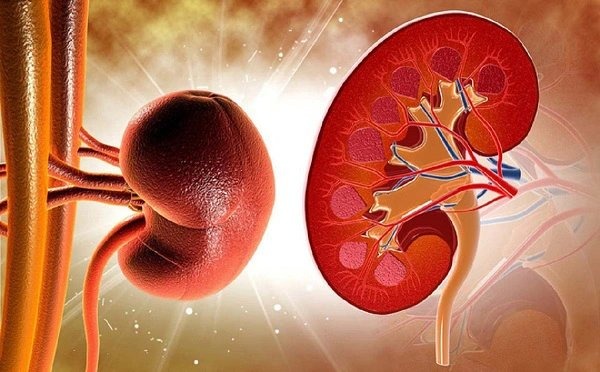 |
| Patients with kidney disease may experience health complications such as anemia, dyslipidemia, cardiovascular problems, pulmonary problems, and fluid and electrolyte imbalances. |
Chronic kidney disease is divided into 5 stages based on the glomerular filtration rate. Stage 5 is the most severe level, the patient must undergo kidney replacement therapy such as kidney transplant, hemodialysis, peritoneal dialysis (peritoneal dialysis).
The more severe the kidney failure, the more complications arise, and the severity of these complications varies according to the glomerular filtration rate. Below are some complications that occur in people with chronic kidney disease.
Anemia: This complication appears early in chronic kidney disease, and its severity increases as kidney function declines. Anemia is caused by the kidneys' reduced ability to synthesize erythropoietin, a hormone involved in blood cell production.
Dyslipidemia: This is a common complication in patients with chronic kidney disease, increasing the risk of cardiovascular complications.
Cardiovascular complications: Hypertension accelerates the progression of chronic kidney disease, and conversely, patients with chronic kidney disease have difficulty controlling their blood pressure. Elevated blood urea levels lead to pericarditis and pericardial effusion. Other complications include left ventricular hypertrophy and left heart failure, coronary artery disease, valvular heart disease, and arrhythmias due to electrolyte imbalances.
Pulmonary complications: Pulmonary edema, pneumonia, and pleural effusion often occur in patients with end-stage renal failure who have not received dialysis or have had incomplete dialysis, or in patients on dialysis who have not reached the standard dry weight (post-dialysis weight).
Water and electrolyte imbalances: Patients with chronic kidney disease often experience water and electrolyte imbalances such as hyponatremia, hypernatremia, hyperkalemia, etc.
Hyperkalemia is the most common and dangerous complication, and if left untreated, it can be fatal. Acid-base imbalances are often associated with metabolic acidosis.
Neurological complications: Uremic encephalopathy, occurring in patients with late-stage renal failure. Central nervous system disorders in hemodialysis patients due to imbalance syndromes encountered during the first hemodialysis session. Polyneuropathy occurs in a small number of hemodialysis patients.
Digestive complications: In end-stage chronic kidney disease, loss of appetite is a common symptom, especially for foods high in protein.
Dr. Do Thi Hang, Head of the Nephrology - Dialysis Unit, Tam Anh General Clinic, District 7, said that the symptoms of chronic kidney disease are very vague, patients do not feel anything unusual, and most of them discover it when going for a health check-up or other medical examination.
By the time clear symptoms appear, the disease has already progressed to the late stage. Therefore, people who experience fatigue, frequent nausea, weight loss, loss of appetite, foamy urine, urinating less than usual, heavy eyelids in the mornings, swollen legs, itchy skin, etc., should see a doctor.
Patients with kidney failure need to strictly follow their doctor's instructions regarding medication, dosage, and treatment schedule. Regular follow-up appointments are necessary to monitor kidney health, detect early signs of kidney damage, and adjust treatment accordingly.
Patients need to pay attention to a healthy diet; avoid foods high in salt, sugar, and fat; add vegetables and fruits. Patients need to be specifically advised by a doctor for each case and each stage because there are stages when they must limit the intake of certain types of vegetables and fruits.
It is necessary to ensure adequate energy and essential nutrients in your diet; eat less protein, with the daily protein intake depending on the stage of the disease.
Prioritize foods rich in bioavailable protein such as chicken, fish, eggs, and plant-based proteins, and reduce protein intake according to the stage of kidney disease. Limit foods high in sodium, potassium, and phosphorus, and consume foods rich in calcium.
Drink plenty of water to avoid fluid retention. Choose an exercise regimen that suits your health, avoiding strenuous activity. Do not abuse tobacco or stimulants. Use medication as prescribed by your doctor, control blood sugar and blood pressure, and manage weight if you are overweight or obese.
In Vietnam, it is estimated that one in 10 people have chronic kidney disease and the rate of chronic kidney disease tends to increase over time.
In addition, the demand for dialysis treatment is increasing while the number of dialysis units and dialysis service providers only meets 30% of the needs of patients needing dialysis nationwide.
According to statistics, in 2019, the cost of managing chronic kidney disease was higher than GDP per capita, and the cost of dialysis was four times higher than the cost of treating chronic kidney disease in the early stages.
Because of the above burdens and consequences, screening, early detection and timely treatment for patients with chronic kidney disease will help slow down the process of kidney function decline, prevent the progression of the disease to renal replacement therapy and bring significant benefits to the health sector.
Individuals with a history of or currently suffering from at least one of the following conditions: diabetes, hypertension, cardiovascular disease (heart failure, ischemic heart disease, etc.), overweight, obesity, acute renal failure, acute kidney injury, kidney stones, urinary stones, systemic diseases.
Regular check-ups are necessary for the high-risk individuals mentioned above to screen for, detect, and treat chronic kidney disease early. Chronic kidney disease can be diagnosed early through blood and urine tests.
Chronic kidney disease screening is key to protecting your kidney health and ensuring you don't miss out on the most effective treatment when the disease is still in its early stages.
Source: https://baodautu.vn/cac-bien-chung-nguy-hiem-do-benh-than-d227197.html







![[Photo] Explore the US Navy's USS Robert Smalls warship](/_next/image?url=https%3A%2F%2Fvphoto.vietnam.vn%2Fthumb%2F1200x675%2Fvietnam%2Fresource%2FIMAGE%2F2025%2F12%2F10%2F1765341533272_11212121-8303-jpg.webp&w=3840&q=75)








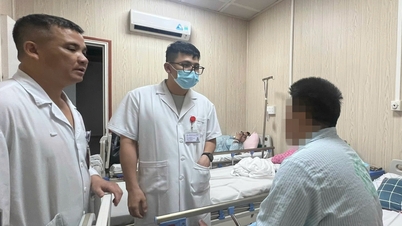
































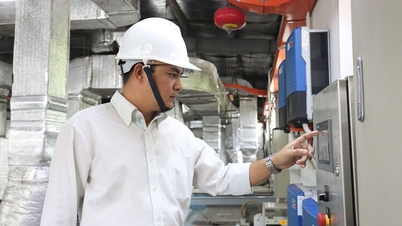






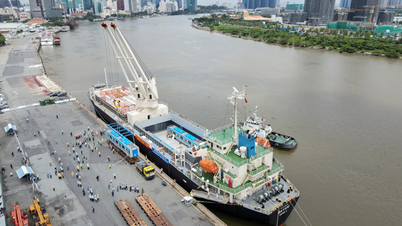










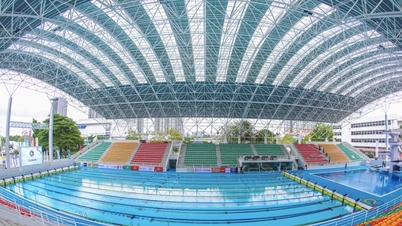






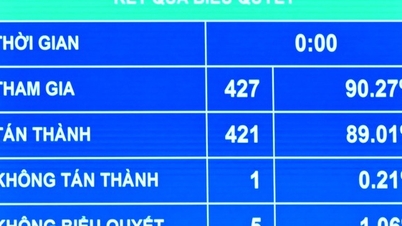

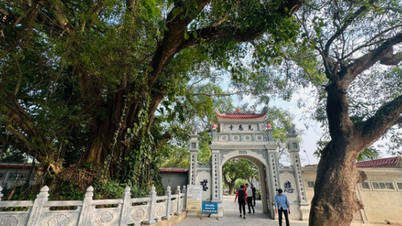

































Comment (0)